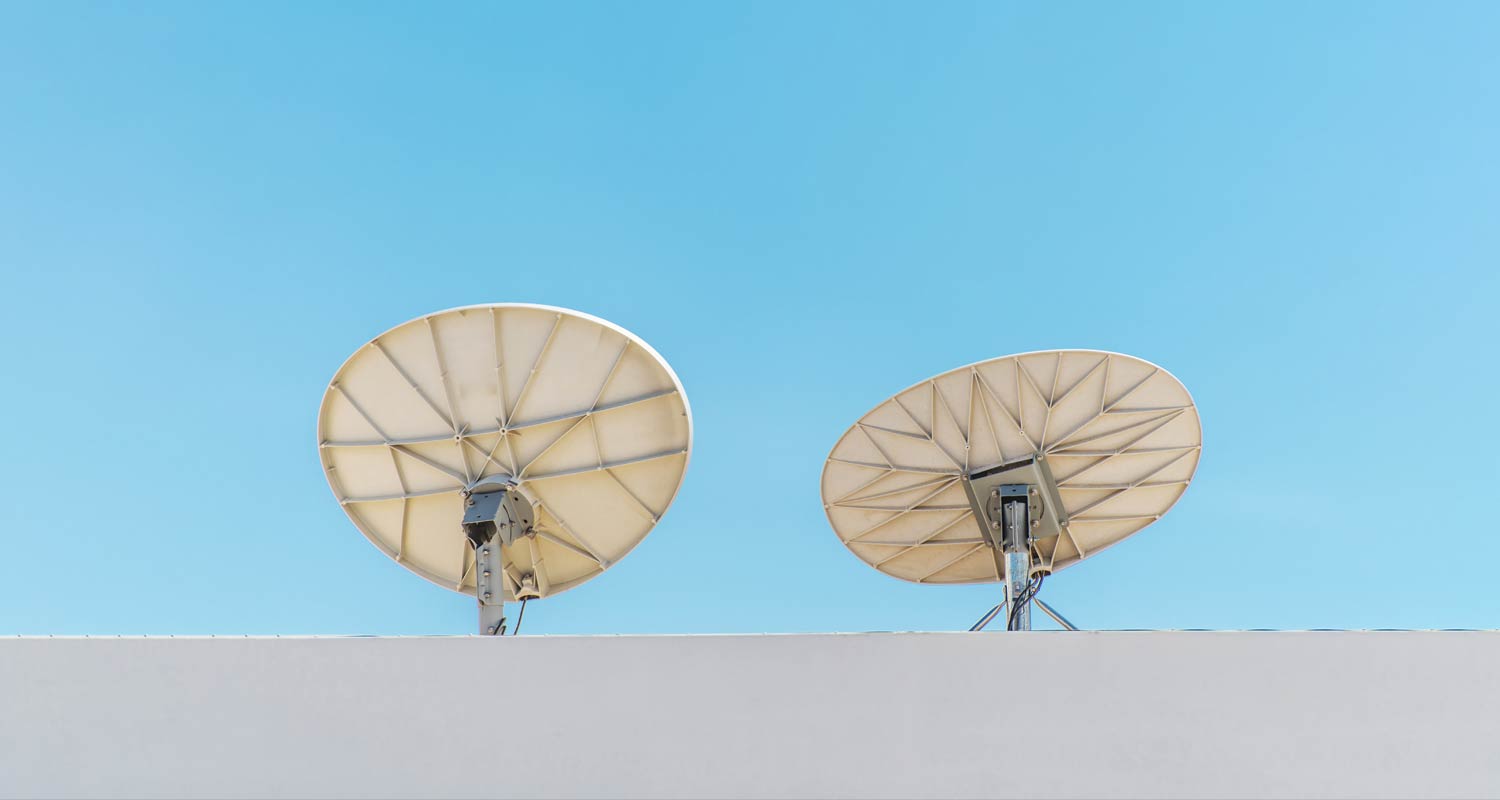 It seems digital terrestrial television (DTT) in South Africa is over before it was even launched commercially.
It seems digital terrestrial television (DTT) in South Africa is over before it was even launched commercially.
There is a glowing neon sign pointing at government’s failure to migrate the country’s broadcasters away from antiquated analogue signal distribution technology. And now the SABC appears to be pivoting away from terrestrial broadcasts, too.
The public broadcaster is seeking a partner to help it launch its own satellite platform – one that will rival competitor eMedia Holdings’ Openview – in time for the analogue switch-off, which is slated for 31 December 2024. The SABC is moving its broadcasts into space. One could say it’s going extra-terrestrial.
A deeper look at the SABC’s satellite ambitions suggests there’s more to its plan than protecting its audience and revenue numbers by shifting as many of them as it can onto satellite. For one thing, the satellite market is arguably ripe for further disruption. MultiChoice Group, with DStv, dominates the pay-TV segment, while eMedia’s Openview owns the free-to-air satellite market. So, perhaps there is an opportunity for a third player to shake things up.
Granted, it could be that the SABC is being too ambitious and that there is no room in South Africa’s satellite market for a third player. But the same was said of the telecommunications market until Telkom launched 8ta (now Telkom Mobile) as the fourth mobile player in 2010. Today, Telkom Mobile is a thriving business with more than 20 million active subscribers – and it’s still growing.
Hurdles
Capitec performed similar disruptive feats in the banking sector and is now South Africa’s largest retail bank by customer numbers, also having surpassed the magical 20 million customer mark.
But for the SABC to make a success of satellite broadcasting, it will have to surmount several hurdles that tripped up the successful implementation of DDT – mainly, the distribution of set-top boxes into households, especially poorer households where affordability is a stumbling block. This is exceptionally expensive, as Openview – which made losses for years – will attest.
An analysis of the tender bulletin the SABC issued requesting a satellite partner at least suggests the broadcaster has given the idea serious thought. For one thing, its finances are a shambles and it simply can’t afford to pay for the project itself.
Read: The SABC wants to launch a rival to Openview
The requirements include the manufacturing of two types of set-top box – one aimed at the lower end of the market and the second aimed at more well-to-do households. Cleverly, transmission will be via Intelsat’s IS20 satellite – the same bird used by DStv and Openview – meaning consumers won’t have to erect a second dish.
But it may struggle to find a partner willing to take on this level of risk without some sort of state guarantee. Would national treasury be prepared to be guarantor? It seems unlikely given the country’s economic malaise and the parlous state of the fiscus.
 The SABC has promised a revenue-sharing agreement to the successful bidder – a clever approach, if anyone is willing to bite (a big if). But the strategy would de-risk the project for the broadcaster, giving it access to the potential upside should it succeed, while minimising downside risk in the event of failure. Again, though, one must ask who will bid given the high start-up costs.
The SABC has promised a revenue-sharing agreement to the successful bidder – a clever approach, if anyone is willing to bite (a big if). But the strategy would de-risk the project for the broadcaster, giving it access to the potential upside should it succeed, while minimising downside risk in the event of failure. Again, though, one must ask who will bid given the high start-up costs.
The SABC already has a strong presence among satellite viewers as both DStv and Openview carry its channels – and they are among the popular channels on those platforms. DStv and Openview have sunk big money into getting set-top boxes into people’s homes – the former had to subsidise the boxes and the latter took losses on its income statement for years. The SABC need only ride the wave to reach audiences through these rival platforms, so why go through the trouble of starting a satellite operation from scratch?
In the latest chapter of the ongoing battle over sports rights sublicensing in South Africa, the SABC chose at the last minute to back away from an already established agreement for Springbok rugby games with main rightsholder and MultiChoice subsidiary SuperSport. The move followed litigation by eMedia over the exclusion of SABC channels on the Openview platform from the deal. TechCentral understands from industry sources that it did this because it felt Openview was getting a free ride with its content and it didn’t want to strengthen a competitor.
Millions of the SABC’s viewers access its channels through Openview, and although there are platform fees to be paid, the SABC keeps the advertising revenue it generates. But the SABC coupling its future to an external platform is high risk. The two companies compete aggressively for advertising.
Political leadership
One big thorn in the SABC’s side is its poor relationship with state-owned signal distributor Sentech. A pivot to satellite would free it from what it has described as Sentech’s “monopoly pricing” for terrestrial distribution. But perhaps Sentech is actually best placed to provide a satellite platform to the SABC – if the parties can resolve their differences, something that will require political leadership from new communications minister Solly Malatsi.
The SABC has spoken of wanting to be in control of its own destiny. The first move towards this was the launch (and subsequent relaunch) of the SABC Plus streaming service, which now attracts around five million monthly users. The shift to satellite would give the public broadcaster the scope to launch more channels at higher definition, and also possibly provide pay channels to South African audiences, too – a much-needed source of additional revenue.
 The author, TechCentral’s Nathi Ndlovu
The author, TechCentral’s Nathi NdlovuAt the very least, these latest developments suggest DTT in South Africa may be dead before it’s even been launched. – © 2024 NewsCentral Media



 1 month ago
79
1 month ago
79













